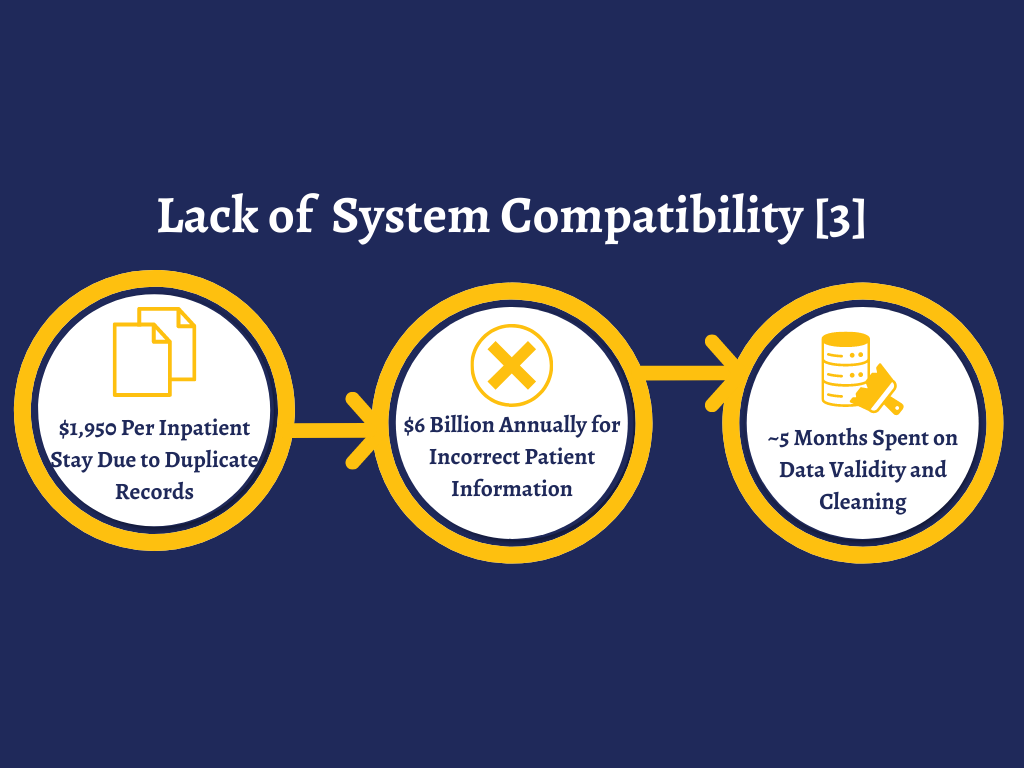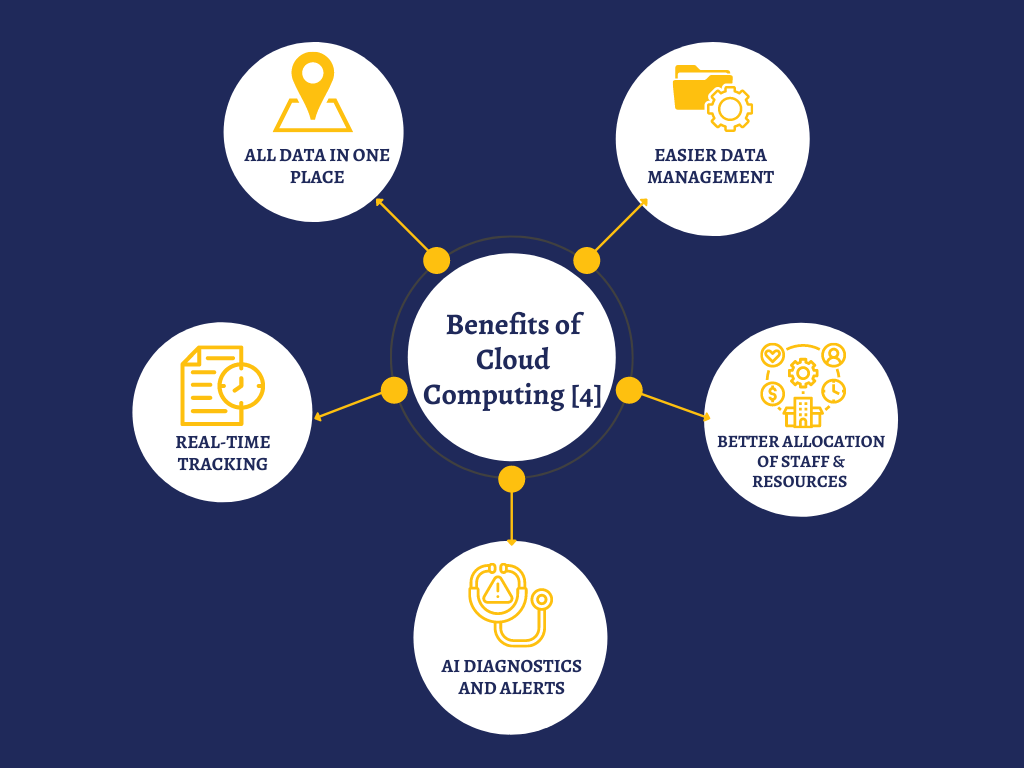
Introduction
Hybrid cloud computing provides private and public cloud options that are secure and allow data transfer between different platforms. Currently, patients’ medical records are kept with different systems, making it harder for providers to securely and efficiently share data. Cloud computing systems provide an effective solution to this problem by promoting collaboration, increasing the speed of treatment, increasing access to information, and decreasing inefficiencies [1]. Being able to share and exchange large amounts of patient records between two systems is crucial to providing better health outcomes. Hybrid cloud computing increases patient outcomes by decreasing barriers that make it harder to receive complete health records.

Background
The healthcare industry becomes increasingly complex as more information is provided and stored. For instance, a patient’s treatment plan consists of appointments, examinations, data analysis, medications, and more [2]. Each of these areas falls into different healthcare departments that have their system of workflow based on their needs and goals. This increases the complexity of providing compatibility between two systems and can make it costly to communicate with one another.
Furthermore, being unable to track a patient’s health record from within the same hospital system is concerning. For instance, if a doctor changes a patient’s treatment plan but doesn’t share it with the rest of the care team, then the patient can experience medical errors or adverse effects. This can be detrimental to patients and expensive to the healthcare industry. For instance, the cost for repeated medical care due to record duplicates was $1,950 for each inpatient stay [3]. Furthermore, incorrect patient identification and information cost the US over 6 billion dollars each year [3]. Additionally, hospitals with more than 150 beds spent around 5 months cleaning up data [3]. Fortunately, hybrid cloud computing offers an efficient solution that promotes data sharing and compatibility.

Solutions
Real-Time Data Sharing & Collaboration
Cloud services increase patient outcomes by providing real-time data and interactions between different departments. For instance, during an emergency, a patient might not be able to drive to a specific doctor that has their medical history on file. Cloud computing allows the patient’s health record to be stored and securely accessed by different physicians regardless of location. Furthermore, if a patient gets new treatment or has an adverse health effect, the rest of the care team will know about it. Providers can be more reactive and able to reassess the patient’s treatment plan in a meaningful way. This is crucial in preventing medical errors due to a lack of collaboration and having the full picture. Creating a unified and centralized location for a patient’s health record that is updated regardless of where the information comes from provides personalized and preventive care.

Furthermore, cloud computing can also provide real-time data on hospitals. For instance, during COVID-19, hospitals faced overcrowding and were unable to take in new patients due to limited available resources. Cloud computing allows patients and doctors to gain insight into whether a hospital is currently full, which is critical in emergencies [4]. It can also provide information on whether more resources or hospital staff need to be transferred to a specific location. This can prevent further health complications for patients, and allow providers to make better referrals in an emergency.
Cloud Computing Promotes API and AI
Cloud computing allows efficient implementation of API to improve meaningful data to physicians. Since cloud computing combines a patient health record in a centralized location, AI and ML can provide meaningful connections. For instance, AI can interpret MRI scans and assist in providing faster and more reliable diagnoses [5]. This is also crucial in emergencies when resources or departments are limited. Furthermore, cloud computing with APIs increases compatibility and communication between different sources of patient care such as remote monitoring, mobile health apps, and even fitness devices [5].

Additionally, implementing AI with cloud computing helps to track different treatment plans and symptoms in one location, which can alert the care team of any adverse medical conditions. Before making a final treatment plan, the algorithm should be able to include different aspects of the patient’s health record, such as medications, predisposed health factors, weight, mental health issues, and more from different sources [6]. The care team can access this plan and assign different tasks for themselves based on their role in supporting the patient. This increases real-time collaboration and personalized care for patients.
Conclusion
Hybrid cloud computing promotes compatibility and communication between different healthcare systems and departments. This provides healthcare staff with greater access to a patient’s full health record, which can be useful in emergencies. Furthermore, cloud computing allows for the implementation of AI, which can provide diagnoses and meaningful data. Overall, allowing different systems to communicate with one another effectively promotes collaboration as well as preventive and personalized care for patients.
References
- https://www.zymr.com/5-key-benefits-of-cloud-computing-in-healthcare-industry/#:~:text=Cloud%20facilitates%20technologies%20that%20are,the%20ultimate%20decision%2Dmaking%20process.
- https://theappsolutions.com/blog/cloud/healthcare-hybrid-cloud/
- https://www.prnewswire.com/news-releases/improving-provider-interoperability-congruently-increasing-patient-record-error-rates-black-book-survey-300626596.html
- https://healthtechmagazine.net/article/2021/08/how-cloud-services-are-enhancing-patient-care
- https://appinventiv.com/blog/impact-of-google-cloud-healthcare-api/
- https://hbr.org/2020/06/its-time-for-a-new-kind-of-electronic-health-record